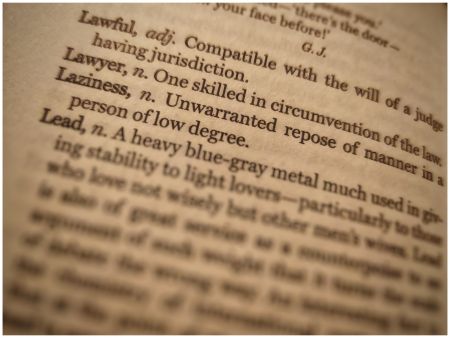Pedantry: Difference between revisions
Jump to navigation
Jump to search
Amwelladmin (talk | contribs) No edit summary |
Amwelladmin (talk | contribs) No edit summary |
||
| Line 1: | Line 1: | ||
{{def|Pedantry|/ˈpɛdəntri/|n|}} | {{def|Pedantry|/ˈpɛdəntri/|n|}} | ||
1. The resting state — the happy place — of any [[legal eagle]]. | 1. The resting state — the happy place — of any [[legal eagle]]. <br> | ||
2. Courtesy of the [[JC]]’s [[tenth law of worker entropy]]; the [[rule of collective agency]], in which it is understood that all agents must, in the service of a common principal, tolerate each others’ pedantry, the instinctive starting point of any [[agent]] when deciding how to act. | 2. Courtesy of the [[JC]]’s [[tenth law of worker entropy]]; the [[rule of collective agency]], in which it is understood that all agents must, in the service of a common principal, tolerate each others’ pedantry, the instinctive starting point of any [[agent]] when deciding how to act. | ||
{{sa}} | |||
*[[Care horizon]] | |||
*[[Laws of worker entropy]] | |||
Revision as of 12:39, 4 February 2021
|
Pedantry /ˈpɛdəntri/ (n.)
1. The resting state — the happy place — of any legal eagle.
2. Courtesy of the JC’s tenth law of worker entropy; the rule of collective agency, in which it is understood that all agents must, in the service of a common principal, tolerate each others’ pedantry, the instinctive starting point of any agent when deciding how to act.
